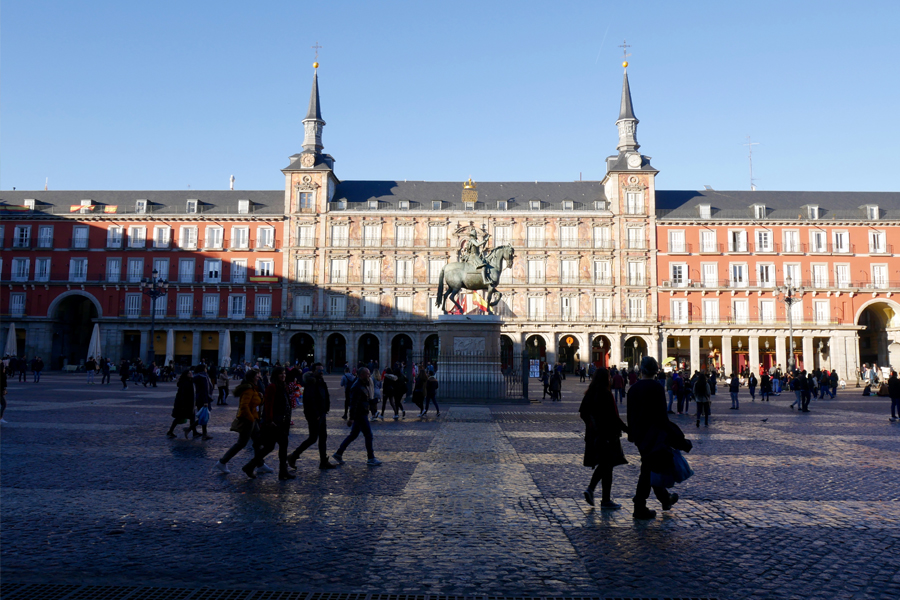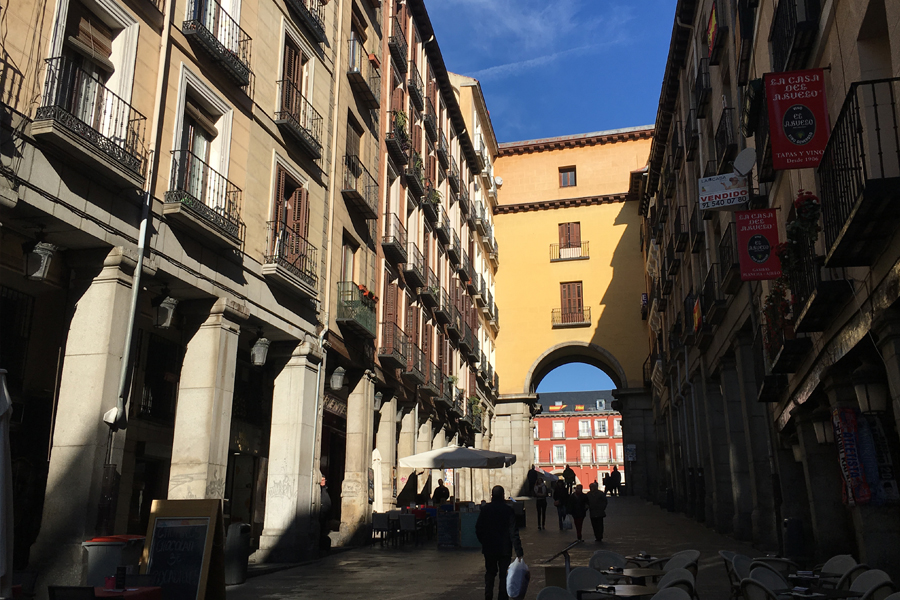ENE student Rudin goes global with veterinary health engineering

Rudin led aspects of experimental design and public relations for a clean water project in Haiti, was a National Defense University analyst focused on international mission sites, and has conducted undergraduate research on modified E. coli strains. After completing her bachelor studies, she plans to attend veterinary school for a dual Doctor of Veterinary Medicine-Master of Public Health degree, and then develop agricultural policy related to mitigating the international spread of zoonotic disease.
Currently studying overseas in Madrid, with plans to spend the summer interning in Europe, this energetic engineer describes herself as “a multidisciplinary engineering student with a self-structured concentration in veterinary health engineering engaged in designing solutions to complex problems at the intersection of animal, human, and environmental health.” She is especially interested in using engineering analytical techniques to advance the One Health initiative, a movement to forge co-equal, all inclusive collaborations between physicians, osteopathic physicians, veterinarians, dentists, nurses and other scientific-health and environmentally related disciplines.
“Veterinary medicine is about treating animals,” Rudin says, “but it is even more so about understanding people and how those relationships govern animals’ health. It also requires experts in science communication — why would someone pay to treat their pet for a medical issue they cannot understand? The many intriguing dimensions of being a veterinarian have continued to hold my attention as I dig deeper into the field.”
As an intern at the National Defense University last summer, Rudin worked in collaboration with United Nations (UN) Peacekeeping Operations, and analyzed data to make recommendations for sustainable water consumption, energy usage and waste management at UN campsites in Lebanon.

During the summer of 2016, she was one of seven interdisciplinary undergraduate researchers focused on synthetic biology research with International Genetically Engineered Machine (iGEM) research. The team independently designed genetic constructs, an experimental schedule, and an international collaboration strategy in addition to managing a crowd-funding campaign, team blog, iGEM wiki, and alumni correspondence and blog. She did lab work engineering E. coli strains to uptake phosphorus in addition to constructing a complementary bioreactor prototype.
She has been involved with the College of Agriculture’s service-learning program in Haiti since 2016. Each year over winter break, the team travels to Cap-Hatien, Haiti to participate in a food security and water quality symposium with other Haitian university students. During winter break 2017, her team established a connection with Gift of Water, an NGO based in Carmel, IN that provides water filtration systems made from two 5-gallon buckets to families in Haiti in addition to a framework for sustainable maintenance.
“In analyzing the world as a complex system, Haiti has taught me valuable lessons in the importance of seeking connections between solutions — people, organizations, systems, or technologies — that already exist rather than generating new ones based on limited information and understanding that may or may not be viable,” Rudin says.
Rudin is completing a minor in global engineering studies through GEARE (Global Engineering Alliance for Research and Education), which is housed in Purdue’s Office of Professional Practice. GEARE combines language study, a semester studying abroad, a domestic internship experience, an international internship experience, and a global design team experience in addition to a series of 1-credit intercultural developmental classes.
When she’s not in the lab or pursuing global education, Rudin serves as an Engineering mentor and Engineering Ambassador, and can also be found volunteering with youth soccer clinics at The Julian Center in Indianapolis, an organization that supports and empowers survivors of domestic violence and abuse.
Rudin has presented before the international scientific community and discussed the importance of continued funding for undergraduate research with the U.S. Senate in Washington, D.C. She is a Steven C. Beering Scholar and is a student in Purdue’s Honors College.


Relative Link: Paige Rudin’s Blog
